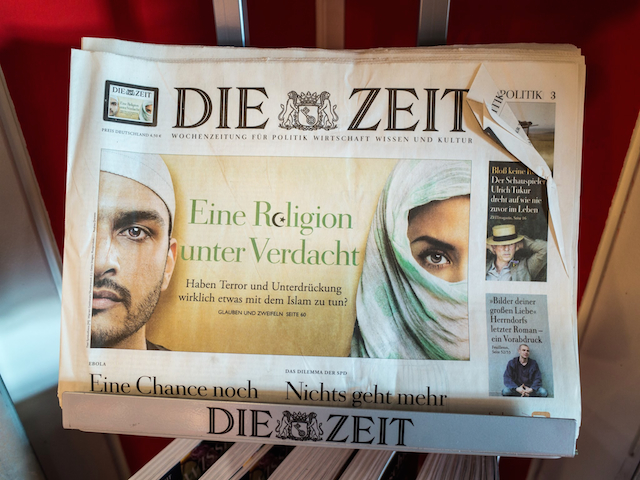Most of the time, the point of education is to help us to distinguish between things, figuring out what does and doesn’t belong together. But there are times when it pays to remember what ignorance once conflated and confused. Prejudice may derive from misunderstanding, but that doesn’t make it any less real. And prejudice, more often than not, comes from a failure to recognize and respect distinctions.
The hand-wringing over rising intolerance in Europe exhibits this tendency. From the Nazis to the Inquisition, the most benighted periods of the continent’s history are ritually invoked to show us how bad things have become. In truth, though, these comparisons concern themselves more with could be than what currently is. No one who is really paying attention can make the claim that Anti-Semitism today is equivalent to its peaks in the past.
In other words, the rhetoric of history repeating itself is often wildly hyperbolic. And there is danger in that. Yet we also have to watch out for the response it elicits in those who know better. Insisting that the particularity of each and every conjuncture be acknowledged at all times may be intellectually defensible — when examined closely enough, the facts are almost always on this approach’s side — but it can also be politically suspect.
If we are too diligent in pursuing analogies, simply because we rapidly perceive their flaws, we may not be able to muster the passion necessary to prevent the “could be” from coming true. Looking at this cover from Germany’s middle-of-the-road newsweekly Die Zeit, we don’t need to work hard to see how it accentuates the otherness of a sizable percentage of the country’s population, essentially insisting on their foreignness. From there, it’s only a small step to compare this treatment of Muslims to the one meted out to Jews in the past.
The important question, though, is whether establishing this connection really serves the purpose for which it is intended. How would making the claim that Germany is returning to bad habits actually help us to prevent that from happening? Dismissing the analogy because the legal and political environment today has so little in common with earlier eras or because decades of de facto reeducation have left Germans a lot more aware of diversity than their grandparents and great-grandparents were would be technically accurate, but also lead to a false sense of security.
Indeed, it might make more sense for progressive intellectuals to let analogies like this stand, while providing the context necessary for people to be mindful of their imperfections. Right now, for example, a decade and a half of anxiety about Muslims is being sustained alongside resurgent fears about the former Eastern Bloc. Although the relationship between these two areas of concern is poorly understood, there is clearly a sense in which they are co-mingling to form an amorphous phobia directed towards anything identified with the “morning” lands, be they cold or hot.
The logical move would be to erect mental barriers to keep them apart. Sure, inexpensive labor from places like Poland and Slovakia inspires resentment just like inexpensive labor from Turkey or North Africa. And there’s no denying that the prospect of terrorist attacks on German soil mobilizes cultural reflexes that date back to the years when Soviet and Eastern Bloc weaponry was poised to bring death and destruction on short notice. Yet for all of the unease that Vladimir Putin has been stirring up, he is still regarded as an ally in the struggle to stave off Muslim domination of “white” Europe. Not to mention that the military task of protecting against a regular army and air force differs greatly from the one of responding to the guerrilla actions plotted by groups like Al-Qaeda.
And yet, while demanding that these differences remain in plain sight may seem like the right thing to do, there is a possibility that doing so will make it too difficult to register those moments of irrationality when one specter mutates into another. For German speakers, the East has been regarded as a source of potentially destabilizing savagery since the days of Charlemagne. Slavs and Turks may not have a lot in common, but they shared a capacity for eliciting Germans’ need to assert and maintain superiority, lest they be overrun by these “lesser” races. And it was the Jews of the Eastern European shtetls that triggered their fears of otherness in the nineteenth and twentieth century, far more than the thoroughly assimilated doppelgangers of Nathan the Wise who had inhabited German cities for centuries.
The impulse to prevent Ukraine from being absorbed back into post-Soviet Russia doesn’t exactly go hand in hand with the urge to protect a “true” German identity from Muslim influence, but they are nevertheless related to each other as political passions. The decline and fall of the West that Oswald Spengler worried German speakers of the Kaiserzeit remains a troubling premonition to this day, even if it is more likely to manifest itself in a robust defense of democratic institutions rather than an amorphous national character.
Even if we know that Germany’s dealings with the former Communist Bloc, the European South, and the predominantly Muslim areas from Morocco to Pakistan play out on different diplomatic and financial planes, discerning the ways in which they are animated by this long-standing fear — and, to be sure, fetishization — of the East can do a lot to help us understand the common motivations that underpin them. Germans are anxious that their essential Germanness will be placed in peril. Whether their definition of that cultural identity resembles the one found in the Middle Ages or the Third Reich is less important, ultimately, than the fact that they perceive it as fragile in the face of foreign incursion.
Photograph courtesy of Joel Schalit.






1 comment